Located in the heart of Bogotá, Maloka Bogotá, an interactive science and technology center for discovering, learning, and exploring as a family, is more than just a museum.
It is an interactive space where science, technology, and curiosity come together. This science and technology center invites visitors of all ages to explore the mysteries of the universe, life, and technology dynamically and engagingly.
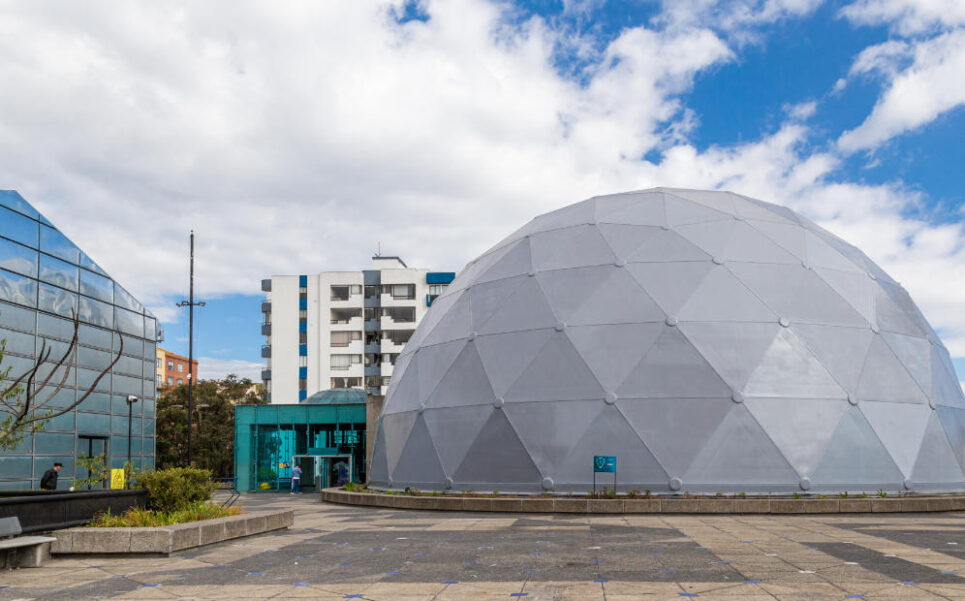
Maloka is a world of science and technology transforming how we learn and experience knowledge.
Whether you are a science enthusiast or simply looking for an enriching experience, Maloka has something for everyone. That is why we interviewed Sigrid Falla, the Director of Experience Architecture at Maloka.
A Bit of History
At the end of the 1990s, Colombia was going through a difficult time. The last quarter of 1998 marked the beginning of the worst economic recession in the country’s recent history.
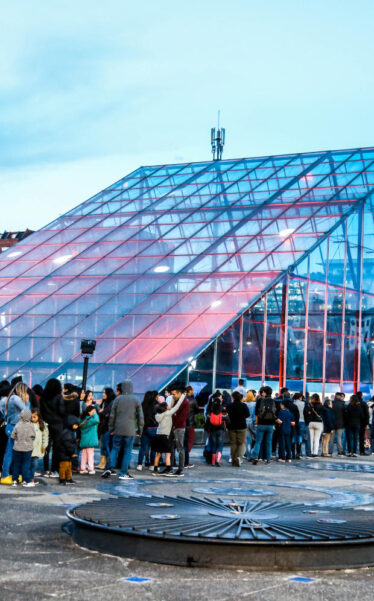
Violence, instability, and hopelessness were part of daily life. Yet, even amid such a challenging reality, many Colombians still believed in change. There was an urgent need to look forward—to imagine a different, fairer, and more hopeful future. A future where knowledge plays a central role as a tool for transformation.
It was precisely in this context that Maloka, the country’s first interactive science and technology center, was born. Since its opening in 1998, Maloka has aimed to bring science into the everyday lives of Colombians. Its mission was clear and ambitious: to encourage learning through interaction, making knowledge a living, dynamic, and shared experience.
Located in Bogotá, Colombia’s capital, Maloka has become a cultural and educational landmark. In this city, which rises 2,600 meters closer to the stars, neither the cold nor the rain matters—people still line up to enter. Families, students, and curious minds of all ages come eager to explore, discover, and learn through play.
Maloka didn’t just open its doors in difficult times—it also offered a window of possibilities. A space to connect generations, awaken curiosity, and plant new ideas. A place where the old and the new come together to inspire those who believe that knowledge is key to building a better country.
Solkes: What exactly is Maloka?
Sigrid Falla: It’s a science center recognized by Colombia’s National System of Science, Technology, and Innovation, as well as by the Ministry of Culture as a museum. We offer accessible experiences that allow people to interact with scientific and technological knowledge, a cultural heritage for all Colombians.
It’s important to understand that Maloka is not just a theme park: it’s a comprehensive commitment to science outreach in Colombia. Its work is carried out through three major initiatives, each with a particular focus but all united by the same purpose: bringing knowledge to every corner of the country.
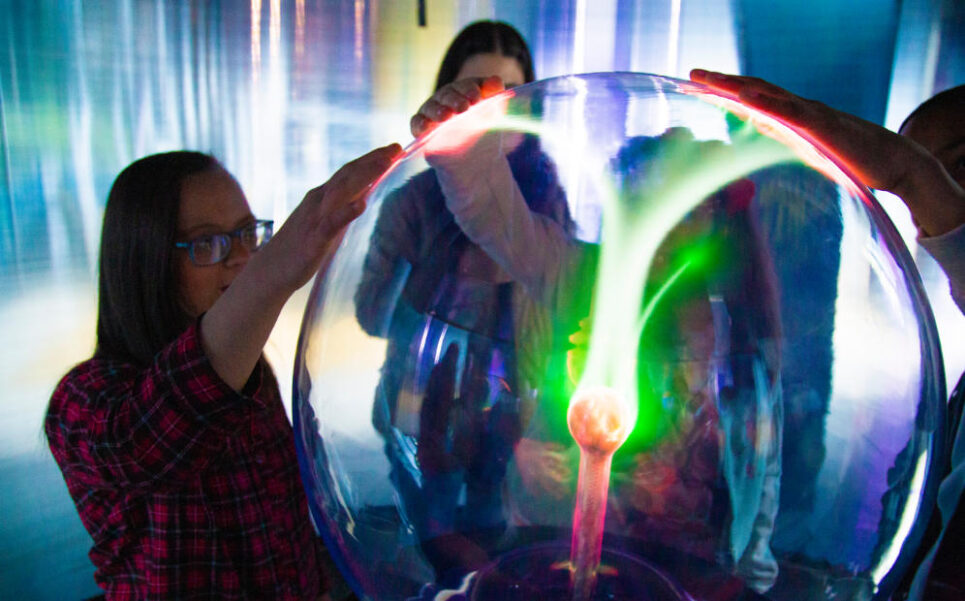
The first is Maloka Interactive Center, the physical heart of the project. This space spans 17,000 square meters and has a feature that makes it unique in the world: it’s the first interactive science and technology center that is completely transparent and underground. Here, visitors can explore exhibitions, participate in workshops, and enjoy educational experiences that spark curiosity and encourage critical thinking.
The second initiative is Maloka Without Borders, a traveling program that brings science beyond Bogotá. Through partnerships, mobile activities, and special programs, this strategy aims to reach communities across the country, promoting continuous and accessible learning for all ages.
Lastly, there’s Maloka Virtual, the digital extension of the project. From its website, this platform offers updated science, technology, and innovation content for children, youth, adults, and teachers. It also includes information about upcoming activities, exhibitions, and corporate resources.
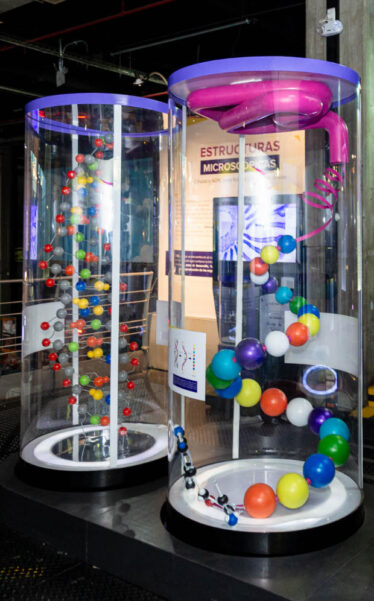
With these three dimensions, Maloka shows that knowledge has no limits and that it’s possible to build bridges between science and citizens, regardless of location, medium, or age.
Solkes: And who makes all this possible?
Sigrid Falla: An interdisciplinary team including professionals in science, education, design, communication, marketing, and development. We all share something in common: a love for learning and transforming our society.
A fact we find important to mention is that the name “Maloka” refers to traditional indigenous communal houses—spaces for gathering and exchanging knowledge. And that’s precisely what Maloka represents.
Over time, Maloka has grown and reinvented itself. From a local initiative, it has become a national reference in scientific education and culture.
Solkes: What has changed since then?
Sigrid Falla: We reorganized our exhibitions into thematic blocks such as Matter and Energy, Evolution, and Sustainable Environment. We also created traveling exhibitions on current topics like climate change, migration, and emotions. In addition, we’ve implemented biology, robotics, and programming labs to encourage active participation.
Maloka and the Science of the Future
At Maloka, knowledge is not static or boring. Quite the opposite: it invites us to look ahead, to imagine possible futures, and to understand how science and technology are transforming our lives.
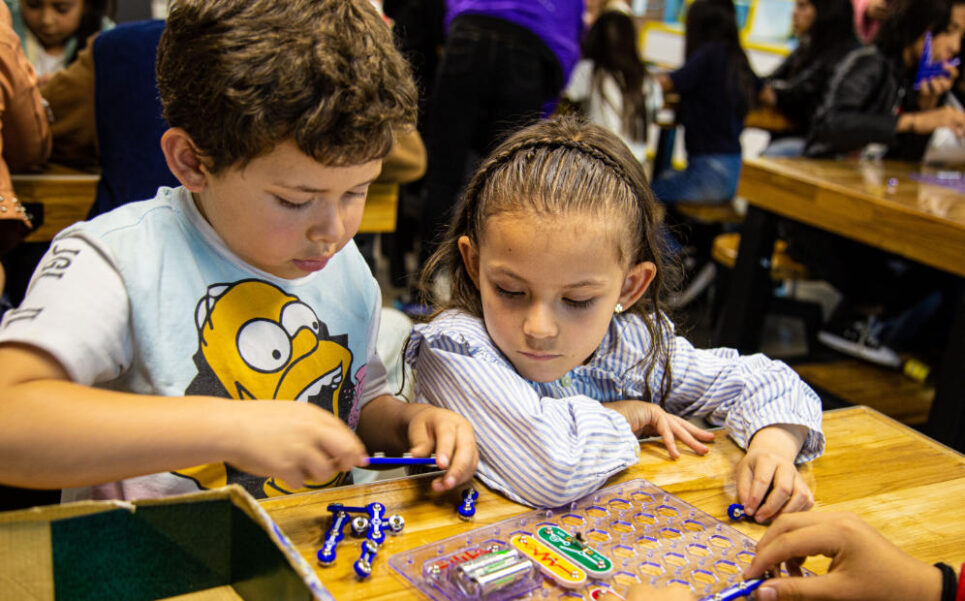
Its themed rooms open the doors to different disciplines, showing us their direct impact on the present and their enormous potential for the future.
“We live in a world full of uncertainty, which demands adaptability. Innovation helps us generate solutions for personal, professional, and social challenges, using the knowledge available to us.” — Sigrid Falla, Maloka-
Maloka offers the Maloka Science Clubs, which are spaces designed for children aged 8 to 12 who enjoy scientific exploration. These clubs consist of 12 sessions of interactive learning, where participants explore scales and changes in nature through observation, experimentation, and the use of technologies such as sensors and 3D printer modeling. This space encourages curiosity, creativity, critical thinking, and teamwork.
At Maloka, the exhibitions explain advancements such as gene editing through CRISPR, the development of more resilient crops, and innovative medical treatments. It’s a journey that connects science with health, food, and environmental sustainability.
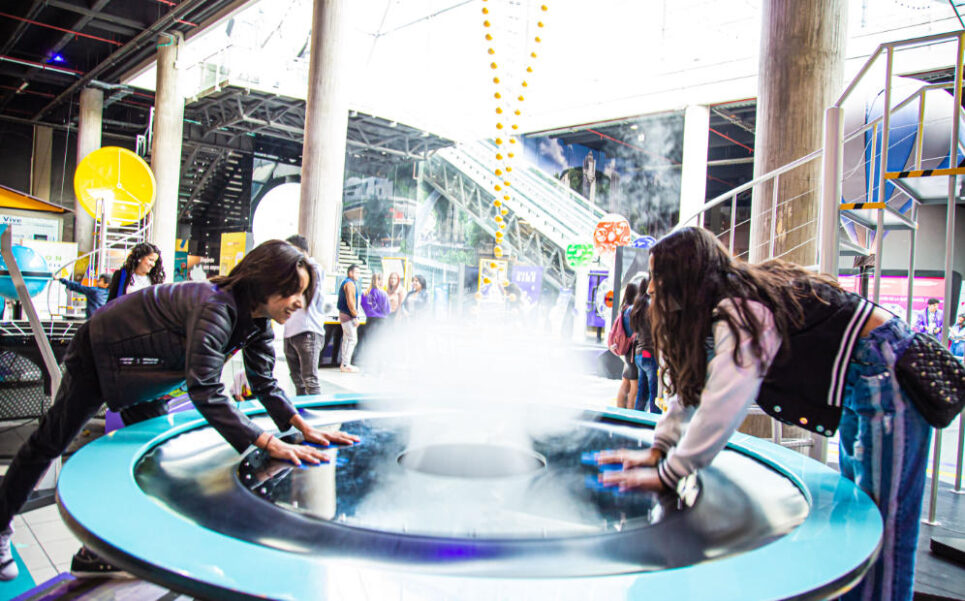
And when it comes to caring for the planet, Maloka doesn’t fall behind. Its clean energy exhibits help visitors understand the crucial role of sources like solar, wind, and geothermal power in the fight against climate change. Everything is presented through visual and interactive experiences that encourage reflection and commitment to the future.
Maloka demonstrates that learning about science, technology, and innovation can be an exciting experience. More importantly, it shows that it is necessary.
“I learned a lot and had so much fun. I thought I would be bored, but I laughed a lot.”
— Sabina Uribe, 8 years old-
What I find most remarkable is its ability to merge two worlds that are often seen as opposites: knowledge and fun. Instead of simply delivering information, this interactive center turns learning into a dynamic, engaging, and entertaining experience.
From the moment you walk through the entrance, the traditional idea of a museum or classroom disappears. Here, visitors don’t just observe—they experiment, touch, play, and marvel. The exhibitions are designed to awaken the natural curiosity of children, teenagers, and adults, offering multiple levels of understanding so everyone can explore at their own pace and according to their interests.
Maloka’s educational approach is based on the premise that we learn best when we enjoy ourselves. That’s why each room, interactive module, and activity is designed to blend wonder with knowledge.
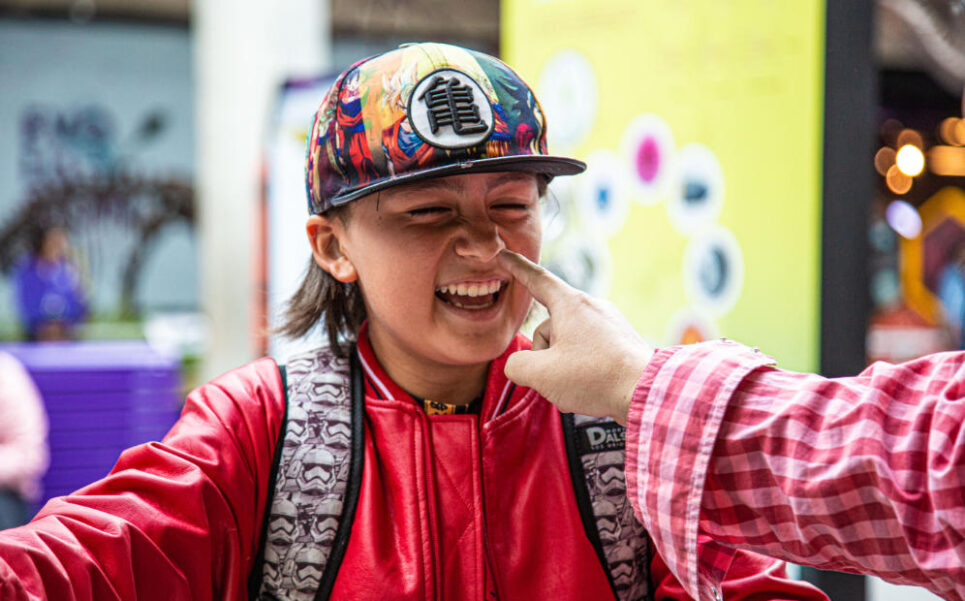
Moreover, the inclusion of technologies like augmented reality, simulators, and sensory spaces reinforces this unique combination of education and entertainment. Maloka doesn’t just inform—it inspires.
In a world where capturing attention is a constant challenge, Maloka shows that knowledge can be thrilling. And above all, that learning can be as fun as it is unforgettable.
Commitment to the Planet
Maloka doesn’t just talk about sustainability—it lives it. Its operational practices aim to reduce environmental impact, and its educational programming promotes responsible lifestyles.
Solkes: Why is it important to generate interactions around issues of public interest?
Sigrid Falla: Scientific and technological knowledge is deeply connected to our daily lives. Topics such as climate change, hunger eradication, and the energy transition require critical citizens, capable of making informed decisions in an environment saturated with information, which is often misleading.
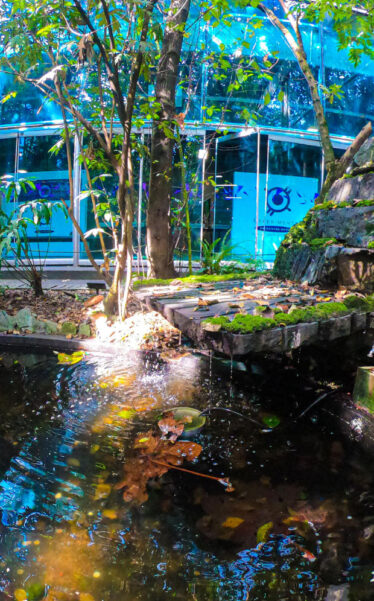
Exhibitions on climate change, biodiversity, and renewable energy play a key role in highlighting the urgency of taking action against the environmental crisis. Through these experiences, Maloka invites its visitors to reflect on the impact of their actions on the planet and the need to change their habits to ensure a sustainable future.
In addition to its exhibitions, Maloka has integrated sustainable practices into its daily operations.
From waste reduction to the implementation of energy efficiency strategies, the center strives to be a model of sustainability. The cafés within Maloka offer local and organic products, promoting responsible consumption, while many of its exhibits are built with recyclable or reusable materials, reinforcing its commitment to the environment.
Maloka’s commitment to the environment is also reflected in its Uaque Maloka project, an urban garden that celebrates biodiversity and sustainability. In this garden, each visitor learns about organic crops, the responsible use of natural resources, and the importance of reconnecting with the earth.
This initiative not only complements the exhibitions on climate change and clean energy but also offers a hands-on, immersive experience in sustainable agriculture, conscious eating, and environmental care.
Currently, there are six garden beds, featuring more than 90 species, including medicinal and aromatic plants, vegetables, flowers, legumes, and fruit bushes, as well as quinoa, potatoes, and corn.
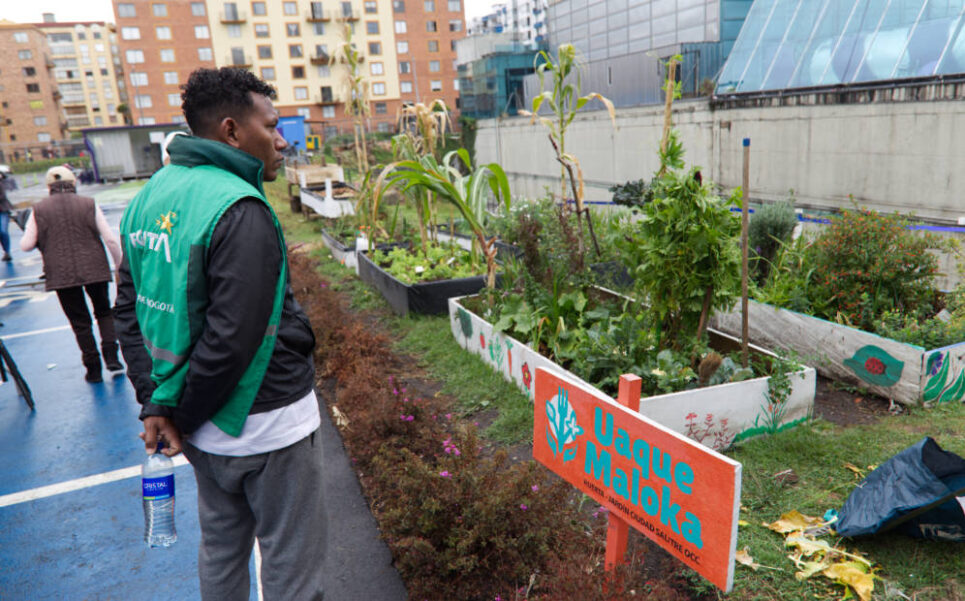
This garden is essentially a living laboratory that promotes biological and food diversity. To maintain it, several people come during the week to water, weed, and harvest. Every other Sunday, there’s a Minga Huertera, a collective planning session where participants decide together what activities to carry out.
The goal is to motivate and strengthen the development of circular economy habits and practices in Bogotá.
As a whole, Maloka not only educates the public on science and technology but also serves as an example of how institutions can actively contribute to the conservation of the planet.
Beyond Bogotá
In addition to its facilities in Bogotá, Maloka has expanded its educational impact through Maloka Viajera, a program of traveling exhibits that brings interactive experiences to different regions of the country.
These experiences are designed to bring scientific and technological knowledge to communities that would otherwise have limited access to such resources.
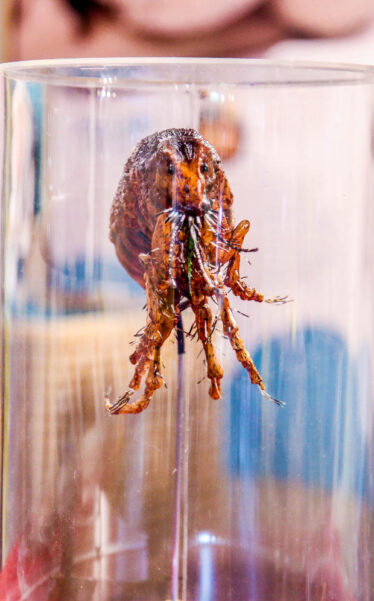
These mobile exhibits not only democratize access to knowledge but also promote community development and local leadership by involving youth from each region as guides and facilitators.
Through interactive pedagogy, these exhibits spark curiosity, strengthen critical thinking, and encourage scientific interest among children and teenagers.
Among the most notable Maloka Viajera exhibitions are:
*** Guácala Room – The Science of Disgust. A curious and fascinating exhibition that explores disgust as an essential emotion for human survival. Through interactive and reflective modules, visitors discover how what repulses us can also protect us from potential health threats.
*** Climate Change Room. An exhibition designed to understand the causes, consequences, and possible solutions to one of the greatest global challenges. It invites reflection on our everyday actions and how they can contribute to mitigating climate change.
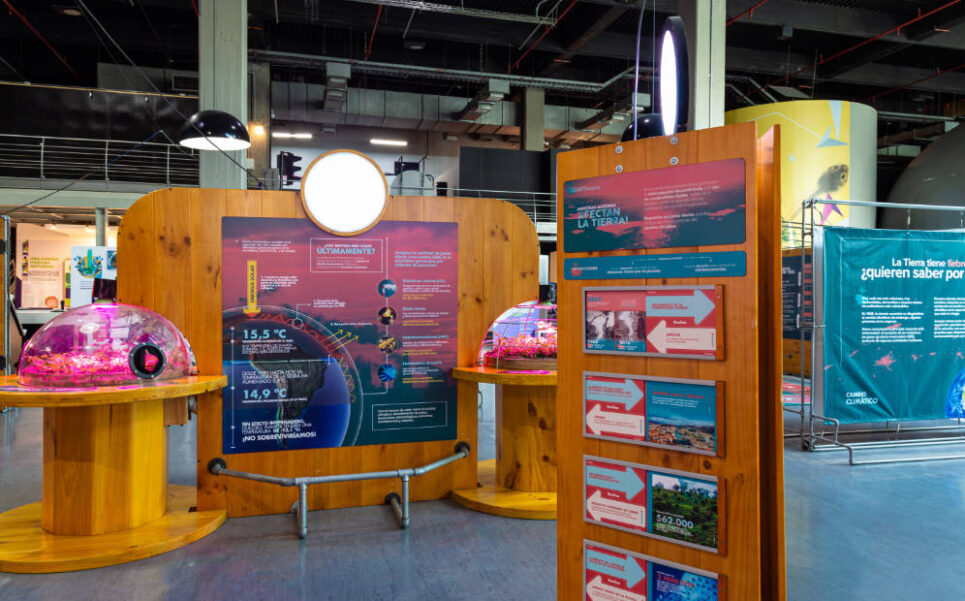
*** Migrate: An Act of Courage. Through the journey of Manuelita, visitors experience migration from an empathetic and human perspective. The exhibition promotes an understanding of displacement as an act of bravery and resilience.
These initiatives reaffirm Maloka’s commitment to inclusive, decentralized education connected to today’s social and environmental challenges.
A Family Experience
Visiting Maloka is an enriching experience for the whole family. Regardless of age—from young children to adults—everyone will find something fascinating to explore. Thanks to its interactive and dynamic environment, visitors can touch, experiment with, and question the world around them through science and technology.
To make the most of your visit, it is recommended to plan ahead. Be sure to check opening hours and consider booking tickets online, especially on weekends and holidays, when visitor numbers are higher. Maloka also offers special discounts for school groups and families, making the experience accessible to all.
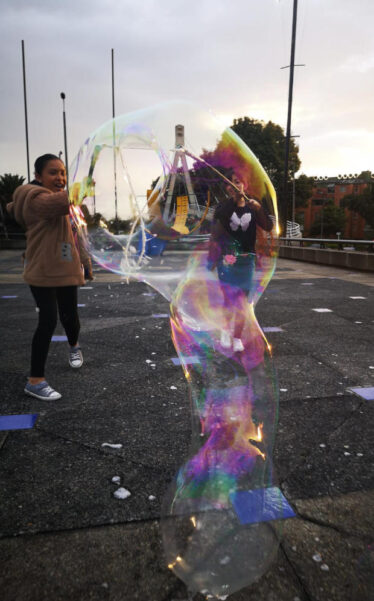
To enjoy the visit without rushing, it’s best to set aside at least half a day.
Maloka features a wide range of exhibits, workshops, and screenings, so it’s worth exploring at a leisurely pace.
Maloka has designed experiences for every family member. Younger children can participate in educational play areas and workshops that encourage creativity and curiosity from an early age. Teens and adults can immerse themselves in exhibitions on biotechnology, artificial intelligence, and other scientific advances shaping our society.
In addition, Maloka hosts family workshops and activities that encourage parent-child participation in both educational and recreational dynamics. Guided tours allow educators to encourage families to ask questions and explore together, creating an environment of shared learning.
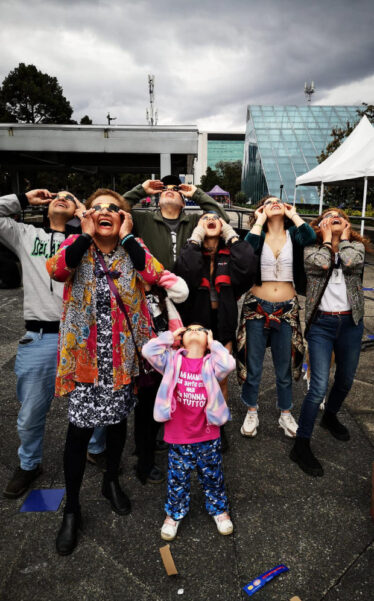
On special dates, such as holidays or vacation periods, the center offers themed events, including film screenings, talks, and interactive exhibits. These activities make each visit unique, encouraging return visits to discover something new every time.
One of Maloka’s most spectacular spaces is the Maloka Dome Theater, inaugurated on August 6, 1998, with a capacity for 314 people. It currently features five high-definition projectors with 30,000 lumens and 4K resolution.
With its impressive curved screen—180 degrees, 16 meters high, and 22 meters in diameter—visitors enjoy a fully immersive experience during each screening.
Meanwhile, Maloka’s Digital Room can host up to 174 people and includes a Christie Laser projector with 10,000 lumens, delivering vibrant colors and optimal image quality. Dolby 7.1 surround sound enhances the experience, and the Silver screen ensures exceptional brightness.
To capture memorable moments at Maloka, don’t forget your camera or mobile phone. Every corner of the center offers photo-worthy opportunities—perfect for social media or to keep as a souvenir of a day full of learning and fun.
Whether discovering science as a family, exploring new technologies, or learning about the universe, a visit to Maloka becomes an unforgettable educational adventure.
Some Final Thoughts
Maloka is not just a place to learn about science—it’s a space where curiosity and the desire to understand the world meet a passion for discovery. It’s a center that goes beyond the simple observation of scientific and technological facts. Here, dreams are nurtured, future generations are inspired, and a deep love for knowledge is promoted.
At Maloka, visitors don’t just absorb information—they become part of a dynamic process of exploration and continuous learning.
Every corner of this science and technology center invites visitors to go beyond the obvious and dive into the mysteries of biotechnology, artificial intelligence, climate change, and more.
What makes Maloka unique is its ability to turn abstract concepts into tangible experiences, inviting everyone—regardless of age or background—to take an active role in their own learning journey.
Moreover, Maloka has established itself as an inclusive, accessible, and collaborative space where visitors can interact with experts, educators, and fellow knowledge seekers. It fosters a constant dialogue that promotes critical thinking and reflection on global challenges such as sustainability and innovation.

This comprehensive approach not only contributes to individual education but also has a positive impact on the community, creating a sense of belonging and social responsibility for the future. Science and technology are not distant or foreign subjects.
If you’re looking for a place to break away from your daily routine and immerse yourself in the fascinating world of knowledge, Maloka is the ideal choice. Each visit becomes a new opportunity to discover something amazing and thought-provoking, opening new doors to curiosity and understanding.
Maloka is, without a doubt, a meeting point between science, technology, and humanity, offering unique experiences that invite us to dream of a better future. Don’t miss the chance to explore this universe of science and technology!


